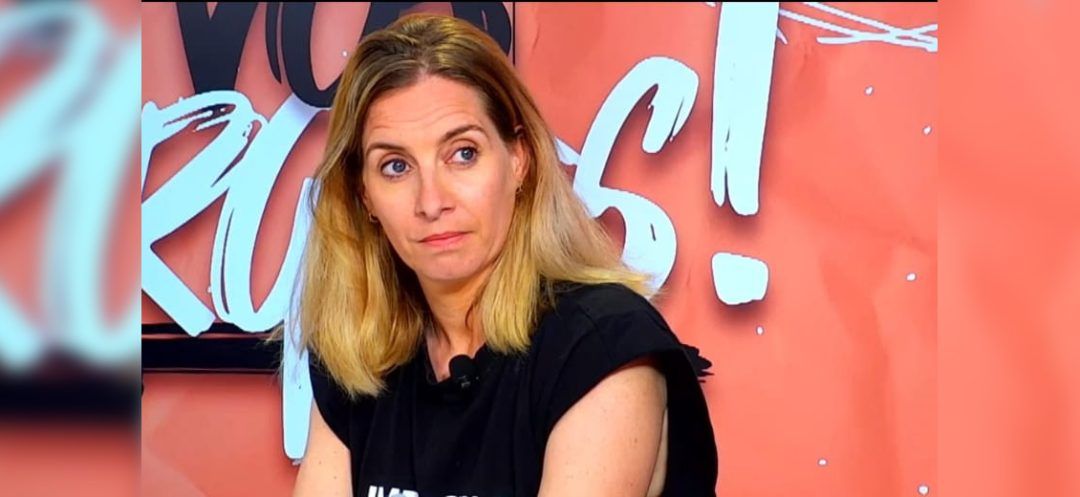
Eight weeks before the start of the Paralympic Games, Aude Moulin-Delalande, Head of Sports at APF France Handicap, gave an exclusive interview to This is Beirut. It was an enlightening encounter with a passionate and committed advocate of the Paralympic Games.
Ms. Moulin-Delalande, could you introduce APF France Handicap and its role in the Paralympic Games?
APF France Handicap is an association of people with disabilities, bringing together these individuals, their families and able-bodied people. It celebrated its 90th anniversary last year. In 1933, four young people with polio, confronted with a society where nothing was provided or adapted for them, decided to found the association.
Revolted by this exclusion and wanting to break the isolation of people, they conceived their own solutions and services, encouraging people with disabilities to do the same.
Today, we continue their fight. Defending the rights of people with disabilities and their families, combating the discrimination and prejudice they face, and supporting them daily in all areas of life (accessibility, education, employment, health…) across France is the DNA of APF France Handicap.
Moreover, “Risking the impossible” is the motto of André Trannoy, one of the founders of the association. This motto can be easily transposed to sports. Our association advocates for access to sports activities for all people with disabilities. Indeed, it is a real vector of well-being and social cohesion. That is why we are heavily involved in the Paris 2024 Games: they represent a real opportunity to change the perception of disability and move towards greater inclusion. For this, we offer concrete solutions in this direction. For example, we have mobilized 200 workers with disabilities through our network of adapted enterprises for the PMR shuttle service offered by Ile-de-France Mobility. They will transport spectators with disabilities between Parisian train stations and all Olympic and Paralympic sites. We also have 150 volunteers with disabilities who will help ensure the smooth running of the Games, and about ten members of the association are among the relay runners carrying the torch. Finally, APF France Handicap supports four para-athletes who embody the Olympic dream! (Hélios Latchoumanaya, world number 1 and French number 1 in para-judo, Alexandra Saint-Pierre, world number 2, European number 1 and French number 1 in para-table tennis, Dimitri Jozwicki, 4th in the 100m at the Tokyo Games, European vice-champion, and Sandrine Martinet, flag bearer in Tokyo 2021, silver medalist in para judo at the Tokyo Paralympics, world champion in 2022, and Paralympic champion in 2016). As you can see, we are fully committed to promoting the Paralympic Games to the widest possible audience, not just those with disabilities. I would add that all these sports can be enjoyed at reasonable prices: nearly half of the tickets for the general public will be 25 euros or less. In the end, the real popular games are the Paralympic Games. As the para-athletes say, they just need full stadiums to experience exceptional Games!
A few weeks before the start of the Paralympic Games, do you think Paris is ready for these Games in terms of accessibility?
A few weeks before the Games (people with disabilities also intend to attend the Olympic Games), we can already draw a preliminary assessment of accessibility, highlighting two positive points: the method used to improve accessibility and the range of services offered to facilitate the movement of people with disabilities. We would like to commend this method of more systematic consultation with the concerned stakeholders: this is the case of the user expert group set up by DIJOP (Interministerial Delegation for the Olympic and Paralympic Games), among others, in which we regularly intervene to advance accessibility. For example, members of the association with disabilities tested the routes to reach the competition venues using different means of transport. This allowed for anticipating contingencies and planning solutions. Another positive example, regarding new facilities like the Adidas Arena and the aquatic center of Seine-Saint-Denis, some measures exceeded regulations (water fountains accessible to people with reduced mobility in the stadium or comfort zones for guide dogs in the aquatic center). Furthermore, several services have been put in place to facilitate the arrival and stay of people with disabilities during the Games (adapted shuttles, accessible taxis, available parking spaces, drop-off zones nearby, receptions at airports and train stations…).
Can you give 2 or 3 examples of what works or doesn't work?
If I had to choose one, it would be the metro. Indeed, it remains the major black spot in terms of accessibility. Only 3% of Paris metro stations are accessible to wheelchair users, meaning 9 stations on line 14 out of a total of 309 stations. Only the new stations are accessible (extension of lines 4, 11, 12, and 14), the old ones are not. It is therefore impossible to make an uninterrupted journey on the entire line. This is why we want to obtain from Ile-de-France Mobilities the decision to systematically consider the accessibility parameter during the renovation works of metro stations. I must emphasize that Paris 2024 is not responsible for the non-application of 3 laws over 49 years. It only inherits the inertia of national and local public authorities for decades.
What is your main goal during these Games?
I wouldn't talk about a fight, the Games are above all a festive and unifying event. They are an opportunity to increase the visibility of people with disabilities. This change in perception is highlighted by 86% of the French people we surveyed in a poll with IFOP. They believe that the Paralympic Games will help challenge the stereotypes associated with people with disabilities. Our fight, especially that of accessibility, will continue once the Games are over. We will measure their legacy. Indeed, whatever the outcome, after the Games, the issue of accessibility must continue.
Do you have anything to add to the readers of This is Beirut?
What if you came? For 11 days, 4,400 Paralympic athletes, 22 Paralympic sports, 184 Paralympic delegations, and 20 Paralympic competition sites will contribute to the 1st Summer Paralympic Games. The poster is beautiful, the promise to be thrilled too. We are waiting for you!
Read more




Comments